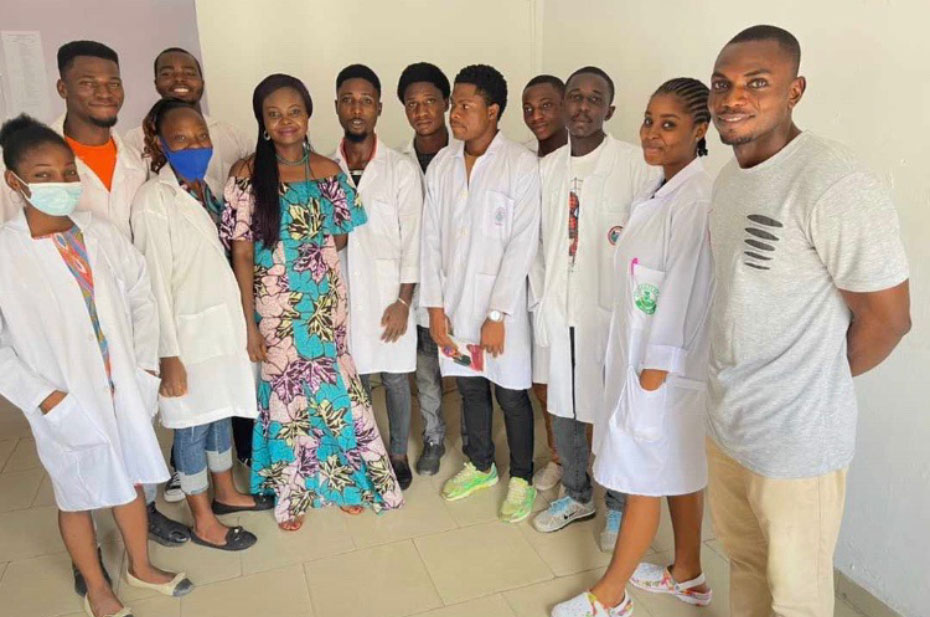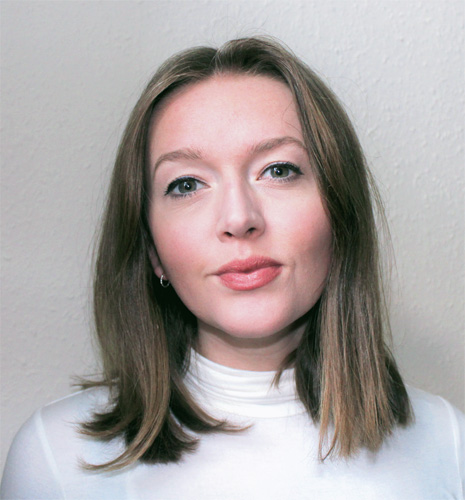Interview with a soapbox scientist: Winnie Nyinoh
Our bodies contain trillions of “micro-organisms”. These include bacteria, viruses, and fungi, and together they form our “microbiota”. These organisms live throughout our bodies, from our guts to our skin, from our lungs to our blood.
Until recently, we didn’t really know what the microbiota did or whether it influenced our health. But, in the last few years, we’ve made huge leaps forward in understanding the importance of our microbiota, particularly our gut microbiota. We now know that an imbalance of the gut microbiota links to diseases such as type 2 diabetes and inflammatory bowel disease. We also know that eating a varied, minimally processed diet can help keep our microbiota healthy.
Dr Winnie Nyinoh, a lecturer at the University of Exeter, is interested in using knowledge of the gut microbiota to improve the health of underserved communities. “I lost a close relative due to complications from type 2 diabetes and wondered if changes in their diet and physical activity could have prevented this,” she tells me. “It was then that I started reading about the gut microbiota and how it influences health, but realised there was limited microbiota research coming from Sub-Saharan Africa”.
In her native community in Nigeria, there have been several conflicts between farmers and herders, and this has led to the displacement of entire communities. These people have now lived in camps for years, where poor nutrition, health, and sanitation are typical. “Reading about the gut microbiota and its impact on health, and seeing this displacement happen in Nigeria, led me to question how life in the camps impact the gut microbiota, and what can be done to improve the microbiota of people living there.”
Since beginning to ask these questions, Winnie has conducted preliminary studies with children living in the makeshift camps. These studies involve investigating the microbes in children's guts to understand the diversity of their gut microbiota. The results show that there are differences in the gut microbiota of children living in camps (who tend to be underweight and undernourished), versus children who do not live in camps. “It’s interesting because these results open the door to future studies,” Winnie says. “The next step will be to conduct a community-based trial using foods that are locally available and cost-effective, with the aim of improving the gut microbiota of these children.”
Winnie first became interested in conducting research in public health while working at a Tuberculosis (TB) centre at a hospital in Nigeria. “I noticed that people were given medication to treat TB for long periods of time, up to six months, and I wanted to know if there was a better way to treat these patients, a way that wouldn’t require such a long time in treatment.” This led Winnie to pursue a PhD at the University of Surrey, UK. During her PhD, she studied how multiple antibiotics work together to treat the bacteria that cause TB.
“One of the best things about my research is the opportunity to solve public health problems in my local community,” she tells me. “But there’s a lack of female mentors, particularly in STEM fields, and specifically for women of colour. This lack of representation has encouraged me to mentor young people and help them advance in their careers.” She says that while she was growing up, she was lucky to have her mum, Mrs Margaret Nyinoh, as a role model. Mrs Nyinoh worked as a scientist in the veterinary field, diagnosing and treating diseases in livestock. “She was very good at what she did, was known to the community, and was highly sought after for her skill, and she did all of this while having a good balance between family and other commitments.”

Winnie and her mentees.
During her time as an undergraduate student and later as a faculty member at Benue State University, Nigeria, Winnie found more mentors to guide her. She admired Professor Regina Samba, who taught her botany, and Professor Charity Angya, the first female Vice-Chancellor. As well as excelling at their jobs, they offered encouragement to female students, and balanced work and family. “While I am fortunate to have been surrounded by these role models, it is not the same for others in my community. Having positive representation from people with similar backgrounds and who share your lived experiences fuels your ambition and paves the way for others to follow. This is why I mentor black students at an academy in Exeter as part of the Black Heritage Universities Group (B-HUGS) elective, as well as mentoring other groups in Nigeria.” She tells me that feedback of this mentoring has been positive, in terms of boosting self-confidence and inspiring ambition in her mentees.
Winnie is making positive change at every level of society: from the individuals she mentors, to the communities whose health she is trying to improve through scientific research. But she makes it clear that she feels she stands on the shoulders of those who came before: her mother, her mentors, her teachers. Now she is paying it forward, becoming not only a brilliant scientist herself, but also a shoulder for future scientists to stand upon.

About the Author
Beki Hooper is a freelance writer and researcher, with a PhD in animal cognition. Her science writing has appeared in numerous publications, including The Conversation, BOU Magazine and Psychology Today, where she writes a blog about the minds, relationships and behaviours of animals. She is also a Pushcart Prize nominated poet, with poems published and upcoming in multiple international literary magazines and anthologies. She lives in Devon, and when she isn't writing she is most often found wandering Dartmoor or swimming in the sea. You can follow her on Twitter @BekiHooper.
